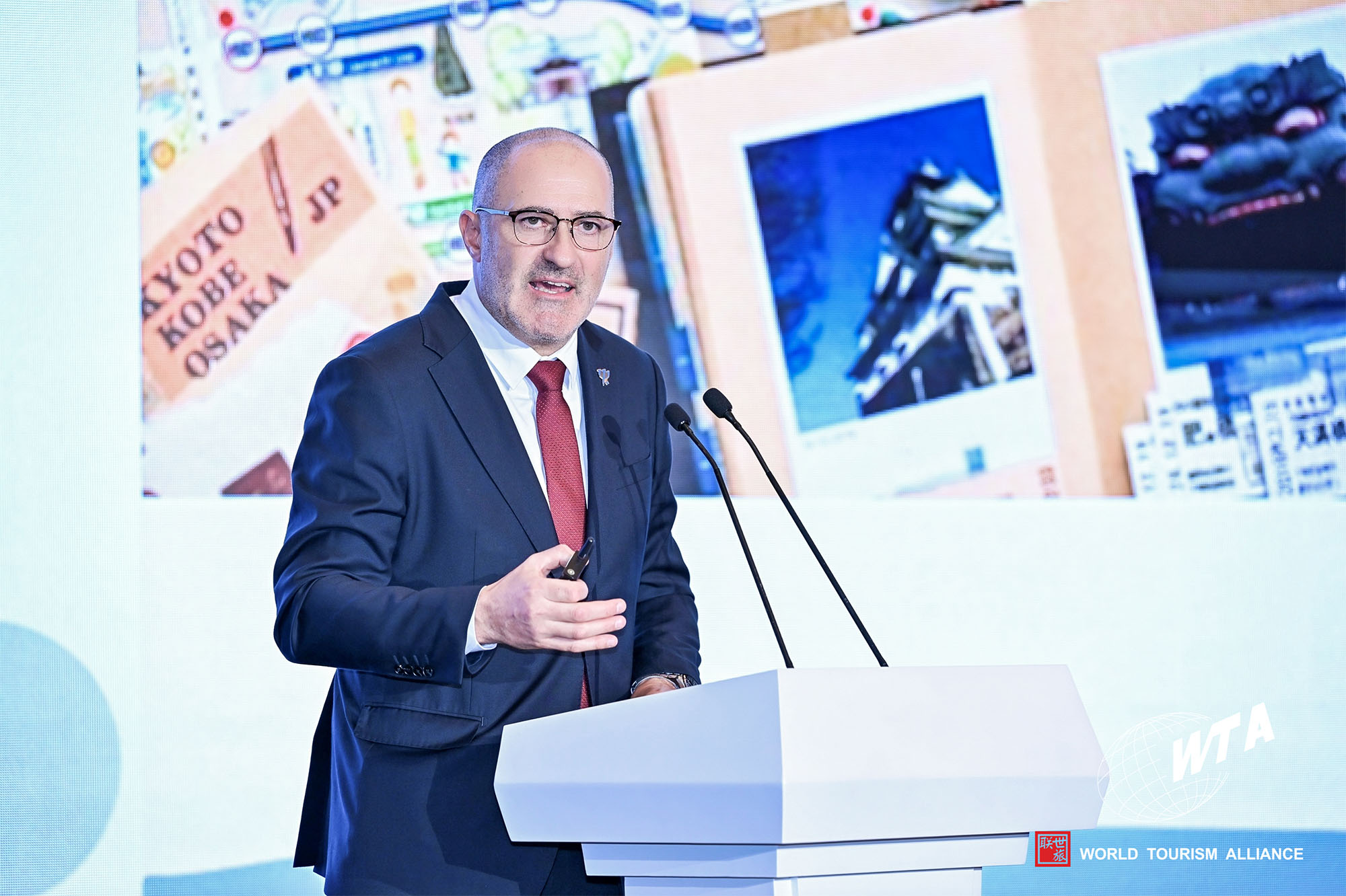2024-11-22
October 31, at the WTA· Xianghu Dialogue 2024 in Sanya, Hainan, Mr. Jean-Charles Alin FORTOUL, CEO of APAC Resorts, Club Med, delivered a keynote speech on "Trends in the Global Hospitality Industry". Below is a summary of the key points discussed.

As the global tourism market recovers and grows, several significant trends have emerged. The rise of social platforms is reshaping the way people travel. Social media now serves as a major driver of travel demand, with travelers increasingly making decisions based on videos shared by influencers. According to a Club Med report, social shopping has become the new norm on platforms like Douyin (TikTok), with half of the users stating they book accommodations based on influencer recommendations during their trips. Another critical trend is the growing emphasis on corporate social responsibility. Travelers are favoring businesses and hotels that actively practice sustainability and social responsibility, which is reflected in the rise of eco-tourism and rural tourism. Moreover, the need for personalized travel experiences is more prominent than ever. Visitors seek tailored itineraries aligned with their unique interests and preferences, exploring not just traditional hotspots but also lesser-known destinations.
Focusing on trends in the hospitality industry, we observe the following: The push toward luxury is unmistakable. Hotel rooms are transforming into multi-functional living spaces where comfort takes precedence. Even adjustable lighting has become a critical consideration for guests. At the same time, all-inclusive resorts are gradually gaining popularity, particularly among Gen Z travelers who view these resorts favorably. Another notable development is the demand for extreme personalization, where guests expect their stays to be customized, from room design to specific services. The preference for seamless and frustration-free services has also grown significantly. Quick, automated processes such as digital check-ins reduce wait times and enhance guest satisfaction. Additionally, guests increasingly want their choices to be environmentally responsible, making eco-friendly hotels more popular.
The wellness industry has emerged as a vital part of the leisure sector. Family travel involving multiple generations, often referred to as ‘three generations under one roof’, is becoming increasingly popular, with a strong focus on activities that promote health and wellness. Specifically, the needs of older family members are significantly influencing these travel choices. Meanwhile, the demand for mental wellness is also growing. Travelers are drawn to experiences such as meditation and sound therapy, seeking to reconnect with nature while avoiding the distractions of modern life. Survey data indicates that destinations such as beaches and mountains are favored for their soothing effects, catering to the desire for relaxation and leisure. Moreover, social health is driving new travel trends. Guests are prioritizing trips that help alleviate stress, rebuild connections with loved ones, and foster a sense of community. For instance, 80% of tourists choose accommodations such as cabins in Iceland, where viewing the Northern Lights offers a natural way to alleviate stress and anxiety.
In the context of family travel, several key trends stand out. Multi-generational travel is gaining traction as families seek opportunities to reconnect and share experiences. Club Med resorts have introduced programs designed specifically for older guests, such as tai chi, cooking classes, guided walks, and wellness seminars. Sustainability awareness is also growing among families, making eco-friendly practices a standard consideration in travel decisions. At the same time, the demand for customization continues to rise. A significant 73% of consumers prefer tailored experiences, underscoring the importance of designing trips to meet family needs. Additionally, the increasing prevalence of child-free households presents new opportunities for resorts to diversify their offerings. A Pew Research Center study revealed that 44% of adults aged 18 to 49 without children are unlikely to have any in the future. This shift requires resorts to rethink their designs and services to cater to smaller families and couples.
Entertainment is evolving alongside hospitality. Immersive experiences are becoming the norm. Destinations are leveraging festivals, personal travel, and family gatherings to create unique offerings such as handcrafted activities, immersive performances, and interactive games. Personalized and all-inclusive travel models continue to gain popularity, with 73% of travelers, according to a recent report, valuing experiences that align with their individual preferences. Luxury lifestyle services are emerging as a focal point for the hospitality industry, with guests seeking sophisticated, multifunctional travel spaces. Sustainability remains a key consideration, as environmentally conscious practices shall be integrated into daily operations. Furthermore, social wellness is taking center stage, with entertainment options that foster interaction and bonding becoming highly desirable.

As a pioneer in offering joyful and liberating vacation experiences for families worldwide, Club Med eagerly looks forward to collaborating with industry partners to spearhead innovation and growth in global tourism.